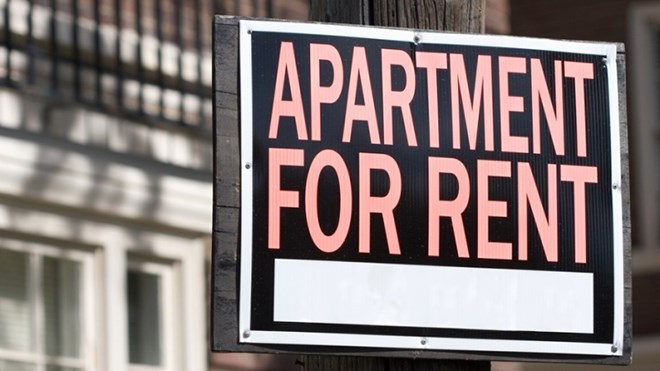People trying to end homelessness in the region echo what those feeling the crunch are saying: People say they are at the breaking point and something needs to be done soon.
The City of Barrie currently has the fourth-highest rental rates in Canada. On average, a one-bedroom apartment in the city rents for $1,650 per month, which is below only Vancouver, Toronto and Burnaby, B.C.
While that information was released by Padmapper, which analyzes rental data from across the country, it could have easily been told by south-end Barrie resident Lorna Smith.
Smith is living in a one-bedroom apartment and paying $1,100 while on disability support for $780 a month.
“Right now, I have $53 to last me the rest of the month. How am I supposed to survive on this?” Smith told BarrieToday. “There are times I just sit here and cry because it seems like nothing will ever be done and I’m going to spend the rest of my life being afraid of what tomorrow brings.”
Smith, 61, has been on disability for 10 years after working mainly driving limousines, taxis and school buses.
“I’ve had issues with my legs since birth (and) as I got older it got harder to move around," she said. "I did what I could and worked when I could in my adult life, I’ve paid into the same systems as everyone else, now I worry how I’m going to eat day-to-day."
Smith said her 25-year-old daughter works two part-time jobs to try to help, but it's just helping the family scrape by.
“Because of COVID, my daughter had to go on CERB and get assistance. We were looking forward to tax season as she was set to get around $2,100,” Smith said. “That would have helped so much, but they took it all and she now owes $500.
"People just can’t cut a break.”
Smith worries every day about how she’ll continue to afford where she lives, as well as what would happen if she ever had to leave and face the current rental market head-on.
Jennifer van Gennip worries for people in Smith’s position.
In an interview with BarrieToday, the chair of the Barrie chapter for Simcoe County Alliance to End Homelessness (SCATEH) said with rent being high in Barrie, and the housing market being as hot as it is, many people are being priced completely out of the market. And it isn’t just low-income families.
“Even middle-income households are feeling the squeeze, especially if their landlords sell and they have to try and find a new place,” van Gennip said. “For people trying to move from our shelters into housing right now, it is almost impossible to be competitive.”
SCATEH is a county-wide coalition committed to partnering with the community in developing a co-ordinated system of care to end homelessness.
Van Gennip said it is demoralizing for both the people trying to find housing and for the agency staff who are trying to help them find suitable housing.
“Everyone is trying to stay hopeful and encouraging, but it's really hard,” she said.
Affordable housing is a crucial area that needs to be addressed to end homelessness, but van Gennip says that means a lot more than the actual definition of the term.
“I don't think anyone would disagree that we need more affordable housing. And when I say that, I mean not just housing at average market rent, which is the default definition of affordable housing,” she said. “One way of helping the homelessness situation in Barrie and Simcoe County would mean housing that is actually affordable to people living on Ontario Works or ODSP (Ontario Disability Support Program), or making $30, $40, $50 (thousand per) year at their jobs.”
According to van Gennip, rentals geared to the wide range of incomes are needed. While that requires subsidies from all levels of government, she believes it will take more than funding to help.
“Housing is a right. Everyone deserves a safe and affordable place to live, yet our policies allow the housing market to behave like this,” she said. “We have provincial policies that suppress wages and incomes, and at the same time allow housing prices to soar out of reach.
"We need policies that incentivize new affordable housing and also policies that protect our existing affordable housing," van Gennip added.
She says there has also been a rise in evictions, despite a provincial rent freeze in place, which only locks in the rent while that tenant is living in that unit. If a tenant is evicted for any reason, the rent on that apartment can be hiked to whatever the landlord wants to charge the next tenant.
“Not only do we have a person that's been evicted, possibly into homelessness, we've lost that unit of housing from the 'affordable market,' probably for good,” said van Gennip.
She says municipalities and the province should be exploring options around rent caps, closing rent-increase and eviction loopholes, protecting against bulk purchases by Real Estate Investment Trusts (REITs), and taking a "hard look" at the practices of the Landlord Tenant Board.
